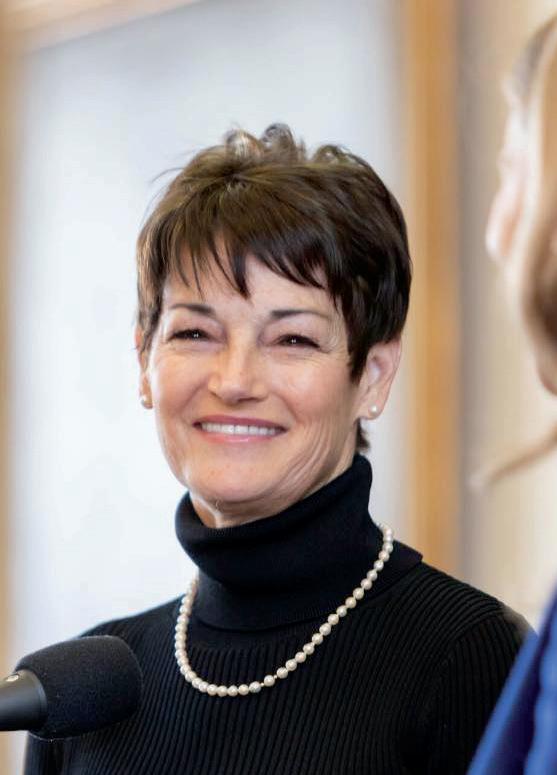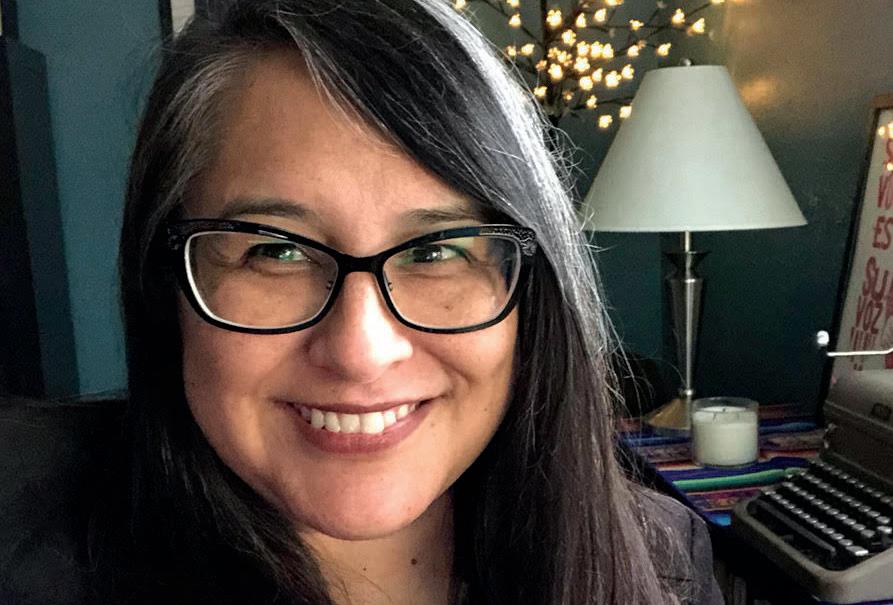
9 minute read
News
HWhen George Floyd was murdered by a police offi cer in Minneapolis last year, Texas Gov. Greg Abbo said he was commi ed to working for reforms to prevent police brutality. However, Texas’ landmark George Floyd Act never got a vote in the state legislature, and at press time, only police reform measures were expected to pass before the session’s end. “The Texas Legislature is saying Black lives don’t ma er,” said Durrel Douglas, executive director of Houston Justice.
HDemocrats in the Texas House celebrated by waving pride fl ags as a bill that would have prevented transgender students in Texas schools from joining sports teams based on their gender identity instead of their sex assigned at birth missed the House deadline for voting on measures sent over from the Senate. House Dems succeeded in running down the clock on the transphobic legislation.
Advertisement
HWith the U.S. Supreme Court set to issue a ruling on a major abortion rights case for the fi rst time with its new conservative majority, the Texas legislature has passed a bill that would outlaw abortion in the state should the high court overturn Roe v. Wade. The law would take eff ect just 30 days after any court ruling or constitutional amendment that gave states the ability to ban abortion. At press time, the bill was headed to Gov. Greg Abbo ’s desk.
A new San Antonio capital-improvement project promises aesthetic and infrastructure upgrades for the city’s historic West Side, including new public art, gathering spaces, widened sidewalks and bike lanes. The project kicked off last week with the painting of the Guadalupe Street Bridge’s underpass columns. It’s expected to be fi nished by 2023. — Abe Asher
YOU SAID IT!
“He called our military ‘woke’ and ‘emasculated,’ which I pointed out — fairly, I thought — is funny coming from a guy who let Donald Trump use his testicles on the driving range.” — Jimmy Kimmel,
on his ongoing feud with U.S. Sen. Ted Cruz of Texas
Backing Senate Bill 29
Assclown Alert is a column of opinion, analysis and snark.
At the tail end of the recently completed legislative session, Democrats in the Texas House successfully ran down the clock on Senate Bill 29, a toxic proposal that would bar transgender student athletes from playing on sports teams corresponding to the gender with which they identify. Like the discriminatory and punitive so-called “bathroom bill” conservatives pushed during the 2017 session, it was a solution desperately in search of a problem.
Trans athletes and their families testifi ed about the harm SB 29 would cause. Advocacy groups warned about the psychological damage the debate was having on these already vulnerable youths. What’s more, the University Interscholastic League indicated that there were no documented instances in which transgender student-athletes competing in the sports it oversees had an unfair advantage.
As such, the party-line votes of these Republican Texas Senators supporting the bill are an embarassment: Paul D. Be encourt, Brian Birdwell, Dawn Buckingham, Donna Campbell, Charles Brandon Creighton, Bob Hall, Kelly Hancock, Joan Huff man, Bryan Hughes, Lois Kolkhorst, Jane Nelson, Robert Nichols, Angela Paxton, Charles Perry, Charles J. Schwertner, Kel Seliger, Drew Springer and Larry Taylor.
To them we say, your discriminatory and mean-spirited vote may be red meat for your base, but it doesn’t make you any less of a fucking assclown. — Sanford Nowlin

Facebook / Dr. Donna Campbell
news
Last week, Cowboys Dancehall managed to avoid a citation for overcrowding during a Saturday concert in which the venue hosted a crowd that authorities said was 800 people over capacity. The San Antonio Fire Department said that it declined to penalize the club because it quickly addressed the issue. Earlier this year, Cowboys was twice cited for violating COVID-19 capacity limits.
San Antonio-based corporations Whataburger and USAA have remained silent as the Texas Legislature works to curtail voting rights in the state, according to the coalition Texas Right to Vote, which issued a list calling out businesses for their inaction on the ma er. A few Lone Star State corporations, including Dell Technologies and American Airlines, have condemned the legislation, which is expected to slash polling locations in predominantly non-white areas of major cities.
After some 110 pounds of cocaine were found washed ashore on the South Texas Coast earlier this month, the Matagorda County Sheriff ’s Offi ce is asking beachgoers to refrain from handling any suspicious packages they fi nd in the water or dunes. The sheriff ’s offi ce has processed and photographed the cocaine and says it will dispose of it through proper channels. —
Abe Asher

Find more news coverage every day at sacurrent.com

Veteran San Antonio organizer Jenn Longoria takes on a new role: driving turnout of young, Latinx voters
BY SANFORD NOWLIN
Longtime San Antonio political operative Jenn Longoria this month joined Jolt Action, one of the state’s foremost Latinx civic-engagement organizations, where she’ll steer its statewide voter registration and voter mobilization strategies.
Previously, Longoria served as served as Texas deputy director for Joe Biden’s 2020 presidential campaign and as Texas director of Elizabeth Warren’s presidential run. Her decade of organizing experience also includes work for Barack Obama’s and Hillary Clinton’s presidential campaigns, along with state and municipal races.
We caught up with Longoria, who will remain based in San Antonio, to ask about her work with Jolt and how participation by young Latinx voters can reshape Texas politics.
You take on this role as the Texas Legislature prepares to pass a bill that voting-rights groups argue is all about suppressing votes of people of color. Do you see your work at Jolt as a counterbalance to that legislation?
I mean, it was a tough season, and I think organizations like Jolt are going to be working overtime to make sure that we are talking to young people and talking to potential voters about how these laws aff ect them. We’ve had to deal with issues like this before, and we’re just going to organize our way out of it. We’re going to make sure that we are talking to young people — that’s what Jolt does best — so that we’re building a movement of Latinos across Texas that’s focusing on young Latino voter turnout, and the numbers are there. So, it is going to be a tough hill to climb, but we’re capable of it, and we’re a progressive organization in Texas, so we’re just going to do the work.
This session, the GOP forced through a lot of bills feeding into the culture war. Does that divisive legislative agenda help you make the case to young voters that they need to be more engaged?
Overall, Jolt’s mission is just to make sure we’re empowering young Latinos and helping them get into places where they understand how powerful their vote is. So, yes, having that session to talk about and le ing people know what they’re up against is a li le bit of a motivation, and it can set a fi re under people that are fi ghting for equality and fi ghting for easier access to voting rights.

Courtesy Photo Jenn Longoria
How does your experience with national campaigns fi gure into the work you’ll be doing with Jolt?
The experience I’ve had has really helped me see Texas for what it is. It’s huge. It’s unwieldy. And we know that Latinos in Texas are not a monolith. We know that we have to be talking to people across Texas in diff erent regions. But also, that experience has helped me see where we need some extra help and where we’ve got a strong base. ... I was drawn to organizing because of my really strong beliefs in voter registration and access to voting. I want to make sure that people’s voices for communities of color are heard and that we’re really fi ghting for those people. … That experience helped, because I really have a broad overview of what the electorate in Texas looks like. I know where to drill down, and I’m excited to be able to do that with Jolt.
There’s been talk for years that demographics are shifting Texas purple, but that sure didn’t happen in 2020. How do we know that there are really enough folks out there who are willing to be engaged in the political process to substantially change election results in Texas?
One thing that I have learned in campaigns is that, typically, large campaigns will engage with the Latino community at the tail end of the campaign or when they want to buff er those numbers and shore up a few extra votes. And so many times that Latino outreach isn’t as pervasive as it should be. It’s not as from-theground-up as it should be. So, what we want to do at Jolt is make sure that we are talking to Latinos all throughout the year, all throughout the process, so that it’s not just coming to those communities at the last minute to ask for votes when we hadn’t been there the whole time. We want to off er them leadership opportunities and education opportunities so that we are actually empowering people to take charge politically and with the system. Campaigns will come in, look for votes where they can, where they’re easy to fi nd, and they’re going to be dictated by resources and money. And Jolt’s motivation is empowering community. So, I think those are two things where one serves the other. The work we’re doing with Jolt will eventually help out progressive candidates or candidates that align with the issues that Latinos really care about.
On that note, political experts argue that the gains along the Texas border by Trump and other rightwing candidates could come down to Latinx voters feeling like they’ve been neglected by the Democratic Party. Do you think there’s been permanent damage there?
I don’t think that we’re too far down that road to correct. I think that it’s true when we talk about Texas being a ba leground state or when we talk about having to fi ght for every vote. I think the fact that we’re having to contest races where we never had a chance before is a great sign, but on the fl ip side of that coin, we are going to have to work for every vote in all communities. We aren’t going to be able to take Latino votes for granted. We’re going to have to make sure that we’re listening to them and really talking about the issues they care about. And I think it was a good wake up call to see that this is not a done deal in the Valley.



